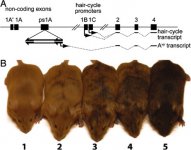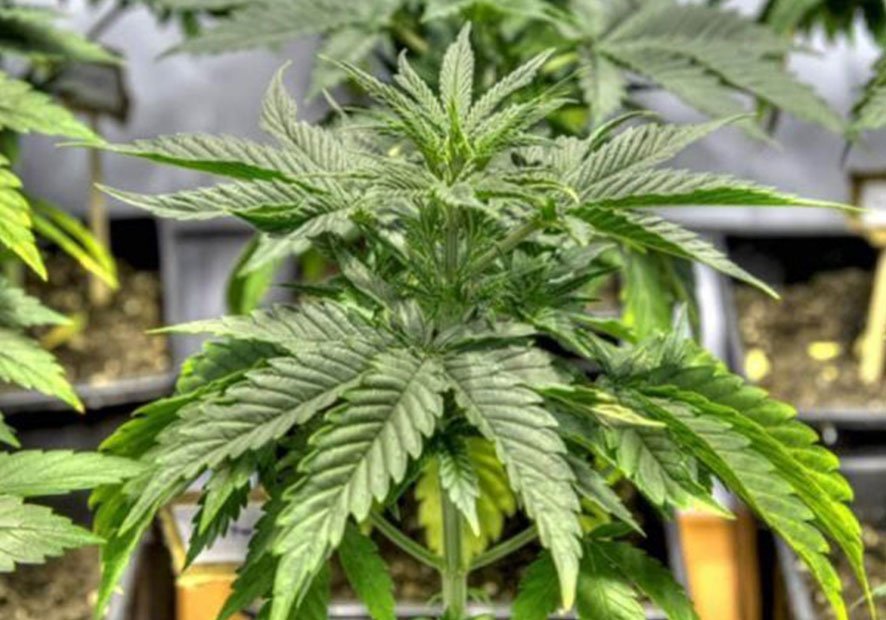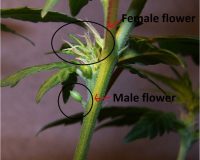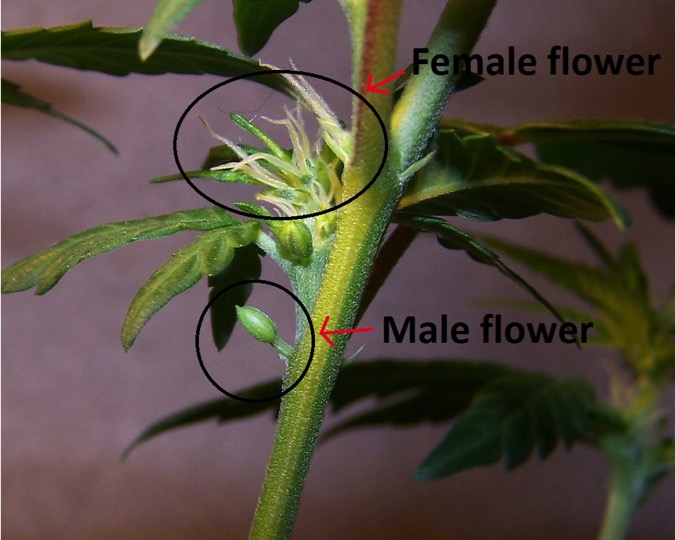BH
Tha Dank Hoarder


"
WHAT IS CANNABIS POLYPLOIDY: THE FUTURE OF GENETIC SELECTION
According to some studies, seeds of polyploid cannabis might be the next huge development in the field of hemp cultivation. Lately, this natural genetic mutation of marijuana has been getting more and more attention from scientists, and some experts in the field think that it’s going to be a burning issue in the field of genetic improvement of cannabis plants. Think about how much has changed in the world of marijuana strains in the last few decades: at first there only were normal cannabis seeds which could yield male or female plants, then growers started to select feminized seeds to produce plants with more profitable flowers, which are today’s farming standard. After a while auto flowering seeds came along to facilitate both indoor and outdoor growing at different latitudes. At the same time, researchers developed products rich in CBD with low percentages of THC in order to obtain flowers which could respect the maximum limits of tetrahydrocannabinol established by the law, and offer a high percentage of cannabinol as well. Some may not like it but this is the world of cannabis: an endless attempt to achieve the perfect strain, not with the creation of GMO plants, but through a more and more attentive selection of different cannabis strains to reach one’s production goals. Nowadays the focus is on polyploid cannabis which seems to have a great potential. This is a kind of cannabis already existing in nature which has a different set of chromosomes resulting from a natural mutation, and which can yield generous harvests as well as having strong effects.What does polyploidy mean?
Polyploidy is a chromosomal mutation, in this particular case in the plant’s chromosomes. Chromosomes are made of DNA and they contain the entire genetic material of an organism, both animal and vegetal. For example, human beings inherit 23 chromosomes from both parents, which are further divided into 23 pairs. These chromosomic sets are formed by diploid pairs, and the same happens with cannabis’ chromosome set. However, when a set contains three or more chromosomes it will result in a triploid or polyploid organism. So, the chromosomic sets of polyploid cannabis are composed by 3 or even more chromosomes instead of the standard two chromosomes, which are normally inherited from both the father and the mother.Features of polyploid cannabis
Why is polyploid cannabis genetically better? There seem to be some differences between non-diploid chromosomic sets and the ones of standard female plants: the plants grow faster and they yield flowers of bigger dimensions and with a higher percentage of terpenes and cannabinoids. However we’d like to remind you that these are not genetically modified seeds: polyploid cannabis is not a GMO! Polyploidy is a natural phenomenon which is incentivised through genetic selection. This phenomenon is in fact already known and used in agriculture. Just to give an example: this prolific genetic mutation has been used to harvest wheat for years now.Scientific research on polyploid cannabis seeds
This genetic selection is not a fact yet but it has all the requirements to become one soon. This kind of product will need many years of research in order to be created, tested and improved but the result might be a real revolution in the agricultural field, just as feminized seeds have already been. For the moment being, research has shown that plants of polyploid cannabis are very productive, resistant and strong but the right genetic set to get the best results has not been discovered yet, especially concerning the amount of terpenes and cannabinoids. A study shows that the percentage of cannabinoids in triploid plants might be even smaller than the one of diploid plants, while polyploid plants seem to give excellent results. A lot of important companies, especially in Canada and in the US, are trying to develop a stable and highly yielding polyploid cannabis strain. Also, even some companies in Israel seem to have good chances of getting a result soon. We would like to end this article by saying that if this kind of strain spread all over the world there might be profits for many people in the field of cannabis cultivation, for both big companies and singular growers. On the other hand, if this revolutionary strain was available just for small powerful groups, it would result in an even more competitive market with great power imbalance which would completely keep out of the market lots of producers."
What is cannabis polyploidy: the future of genetic selection
Polyploidy is a word speaking about cannabis and future: let's find out its meaning.
 cbweed.com
cbweed.com
"
Polyploidy in Cannabis
Polyploidy is defined as containing more than two homologous sets of chromosomes. Most species are diploid (all animals) and chromosomal duplications are usually lethal, even partial duplications have devastating effects (Down’s syndrome). Plants are unique as in being able to somewhat “tolerate” chromosomal duplications. We often observe hybrid vigor in the F1, while the progeny of the F1 (F2) will produce mostly sickly or dead plants, as the chromosomes are unable to cleanly segregate.
Epigenetics and Phenotypic Consistency in Clones
One mechanism of turning off genes is by the DNA becoming physically inaccessible due to a structure resembling a ball. In addition, making molecules similar to DNA (RNA) that prevents expression of a gene can turn off certain genes. Both mechanisms are generally termed epigenetics.
Epigenetic regulation is often dependent on concentrations of certain proteins. Through the repeated process of cloning, it is possible that some of these proteins may be diluted, due to so many total cell divisions and epigenetic control of gene expression can be attenuated and results in phenotypic variability.
Sexual reproduction, and possibly tissue culture propagation, may re-establish complete epigenetic gene regulation, however the science is lacking. Epigenetic gene regulation is one of the hottest scientific topics and is being heavily investigated in many species including humans.
Hermaphrodites and Sex Determination
Cannabis is an extremely interesting genus (species?) for researching sex determination. Plants are usually either monoecious (both male and female organs on a single plant), or dioecious, separate sexes. Sex determination has evolved many times in many species. Comparing the mechanisms of sex determination in different organisms provides valuable opportunities to contrast and compare, thereby developing techniques to control sex determinations.

The sex organs on a Cannabis plant identified.
Cannabis is considered a male if it contains a Y-chromosome. Females have two X chromosomes. Even though female Cannabis plants do not have the “male” chromosome, they are capable of producing viable pollen (hermaphrodite) that is the source of feminized seeds. Therefore, the genes required to make pollen are NOT on the Y-chromosome, but are located throughout the remainder of the Cannabis genome. However, DNA based tests are available to identify Male Associated Sequence (MAS) that can be used as a test for the Y-chromosome in seedlings/plants.
Natural hermaphrodites may have resulted from Polyploidization (XXXY), or spontaneous hermaphrodites could be a result of epigenetic effects, which may be sensitive to the environment and specific chemical treatments.
Feminized seeds will still have genes segregating, thus they are not genetically identical. This shouldn’t lead to a necessary decrease in health, but could. A clone does not have this problem.
The other issue is that “inbreeding depression” is a common biological phenomenon, where if you are too inbred, it is bad…like humans. Feminized seeds are truly inbred. Each generation will decrease Heterozygosity, but some seeds (lines) may be unhealthy and thus are not ideal plants for a grower.
GMO– The Future of Cannabis?
Is there GMO (genetically modified organism) Cannabis? Probably, but it is likely in a lab somewhere…deep underground! Companies will make GMO Cannabis. One huge advantage to doing so is that you create patentable material…it is unique and it has been created.
The definition of a GMO is…well, undefined. New techniques exist whereby a single nucleotide can be changed out of 820 million and no “foreign” DNA remains in the plant. If this nucleotide change already exists in the Cannabis gene pool, it could happen naturally and may not be considered a GMO. This debate will continue for years or decades.
Proponents of GMO plants cite the substantial increase in productivity and yield, which is supported by science. What remains to be determined, and is being studied, are the long-term effects on the environment, ecosystem and individual species, in both plants and animals. Science-based opponent arguments follow the logic that each species has evolved within itself a homeostasis and messing with its genes can cause drastic changes in how this GMO acts in the environment/ecosystem (Frankenstein effect). Similarly, introducing an altered organism into a balanced ecosystem can lead to drastic changes in the dynamics of the species occupying those ecological niches. As in most things in life, it is not black and white; what is required is a solid understanding of the risks of each GMO, and for science to prove or disprove the benefits and risks of GMO crops."

An Introduction to Cannabis Genetics, Part III - Cannabis Industry Journal
Dr. CJ Schwartz discusses polyploidy, epigenetics, sex determination and GMOs as they relate to Cannabis.